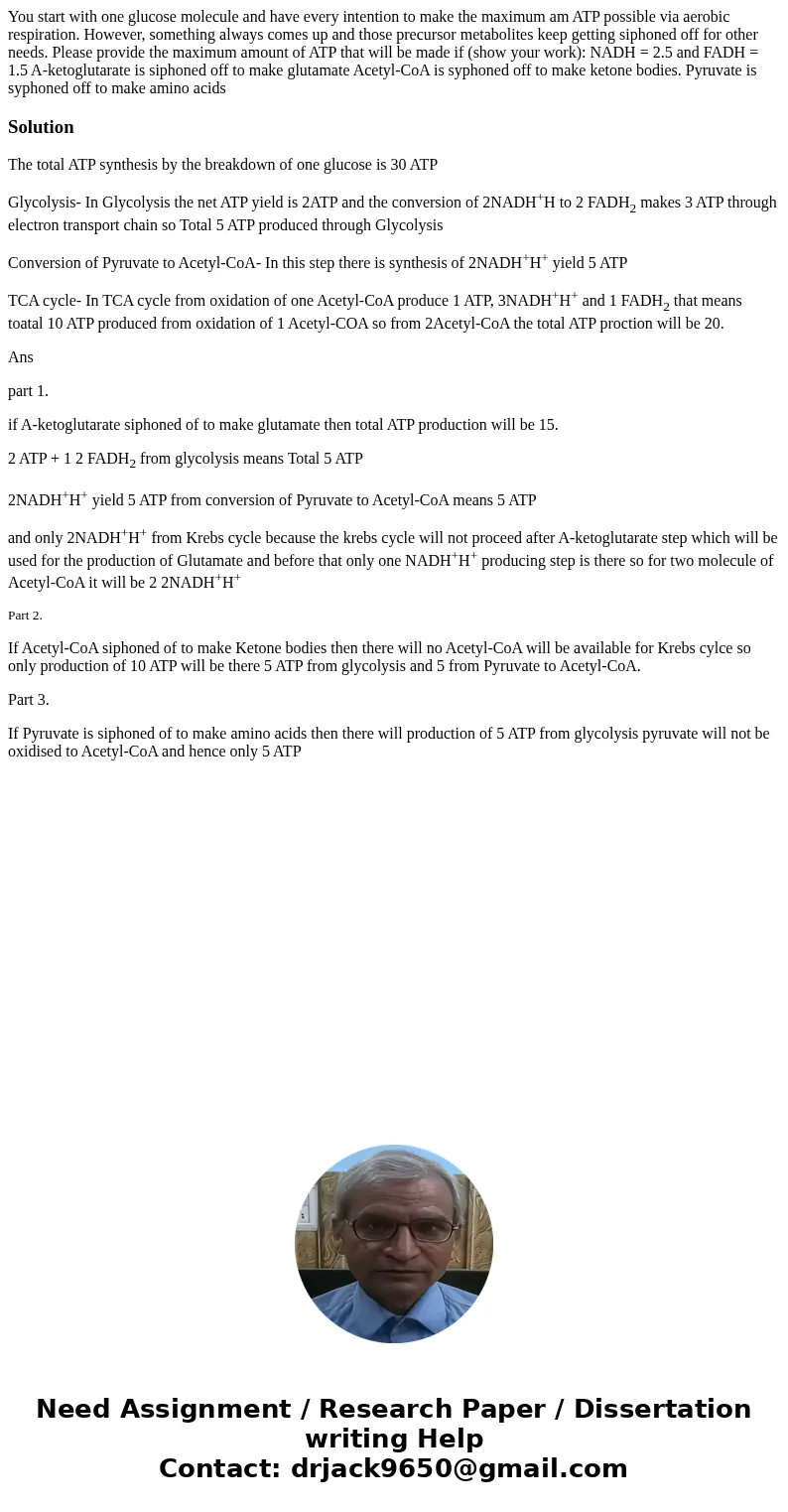You start with one glucose molecule and have every intention
Solution
The total ATP synthesis by the breakdown of one glucose is 30 ATP
Glycolysis- In Glycolysis the net ATP yield is 2ATP and the conversion of 2NADH+H to 2 FADH2 makes 3 ATP through electron transport chain so Total 5 ATP produced through Glycolysis
Conversion of Pyruvate to Acetyl-CoA- In this step there is synthesis of 2NADH+H+ yield 5 ATP
TCA cycle- In TCA cycle from oxidation of one Acetyl-CoA produce 1 ATP, 3NADH+H+ and 1 FADH2 that means toatal 10 ATP produced from oxidation of 1 Acetyl-COA so from 2Acetyl-CoA the total ATP proction will be 20.
Ans
part 1.
if A-ketoglutarate siphoned of to make glutamate then total ATP production will be 15.
2 ATP + 1 2 FADH2 from glycolysis means Total 5 ATP
2NADH+H+ yield 5 ATP from conversion of Pyruvate to Acetyl-CoA means 5 ATP
and only 2NADH+H+ from Krebs cycle because the krebs cycle will not proceed after A-ketoglutarate step which will be used for the production of Glutamate and before that only one NADH+H+ producing step is there so for two molecule of Acetyl-CoA it will be 2 2NADH+H+
Part 2.
If Acetyl-CoA siphoned of to make Ketone bodies then there will no Acetyl-CoA will be available for Krebs cylce so only production of 10 ATP will be there 5 ATP from glycolysis and 5 from Pyruvate to Acetyl-CoA.
Part 3.
If Pyruvate is siphoned of to make amino acids then there will production of 5 ATP from glycolysis pyruvate will not be oxidised to Acetyl-CoA and hence only 5 ATP

 Homework Sourse
Homework Sourse